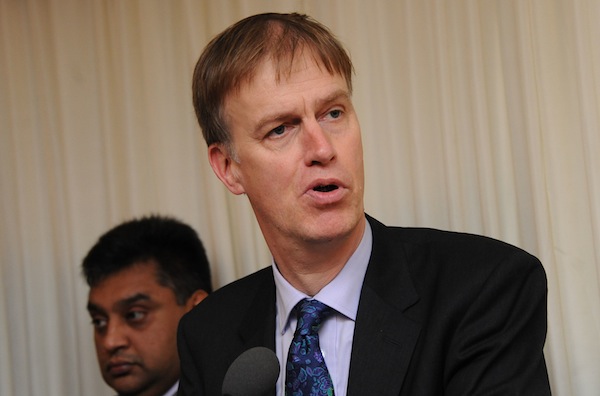Last night’s debate on the bill capping benefit rises at 1 per cent was far more revelatory than it might first have appeared. It wasn’t Labour’s conclusion that the Tories were evil and the Lib Dems (those that turned up, at least: there were nine rebels, but a further 11 Lib Dem MPs were mysteriously absent) just as bad. But the most interesting revelation was the way the party handled this exchange:
Charlie Elphicke: Is it therefore the right hon. Gentleman’s and the Opposition’s policy that uprating should be not by 1%, but by inflation? Is that a commitment?
Stephen Timms: Uprating should indeed be in line with inflation, as it always was in the past.
This was significant. Until Timms’ speech, Labour had only gone so far as to say that it would vote against the Welfare Benefits Uprating Bill, not that it would reverse it and relink benefits to inflation. Timms had, in just one sentence, made a multi-billion pound spending commitment without any indication of how his party could fund it.
Which is why it wasn’t surprising when the party backtracked on Timms’ comments, saying this was Labour policy for now, not 2015. In fact, they’ve been doing the same thing with party policy announcements, too, with Ed Balls’ jobs guarantee, which the party announced as a policy ‘for now’ rather than a 2015 manifesto commitment. This also meant that Balls could spend the money from a raid on pensions that he’d previously earmarked for something else: having a policy apply to a specific moment is convenient when there isn’t much money floating around.
This would be fine if the Labour party was a charity, urging the government to take on certain policy suggestions for the good of those being affected by legislation. But at some point Labour will have to switch from campaigning mode into reality mode and accept that some of the cuts it has badged as evil may well be its only option. Of course, the convenience of its pledge for a zero-based spending review is that it helps Labour to avoid reaching that conclusion for as long as it possibly can.







Comments